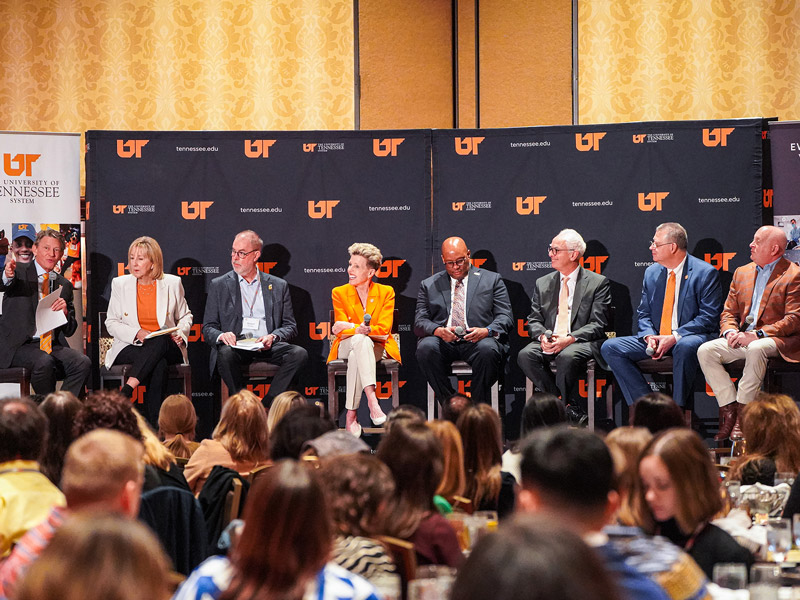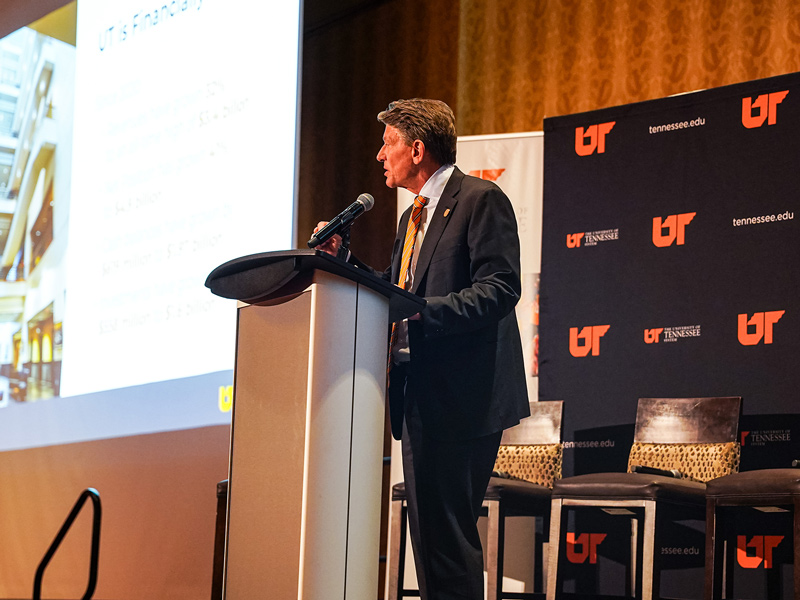State of the University
Each year, UT System President Randy Boyd and UT leaders reflect on progress, celebrate milestones and share bold plans for the future. Explore past addresses and learn how these dedicated leaders are shaping the future of the UT System.

Contact the Office of the President
Have a question, media inquiry or speaking request? Get in touch!
Jamie Blessinger
Executive Assistant
865-974-2241
Melissa Tindell
Media Contact
865-974-0741
Save the Date: 2026 State of the University Address
Tuesday, Feb. 10
11 a.m. EST / 10 a.m. CST
The University of Tennessee System will host its annual State of the University Address in Franklin, Tennessee, which will kick off the Grand Challenges Summit. Delivered by UT System President Randy Boyd, the event will be live-streamed on tennessee.edu and will feature a panel discussion with UT leadership. This year’s event will highlight UT’s momentum across the state and provide an overview of where the university is headed next under the new Be One UT Strategic Plan.
